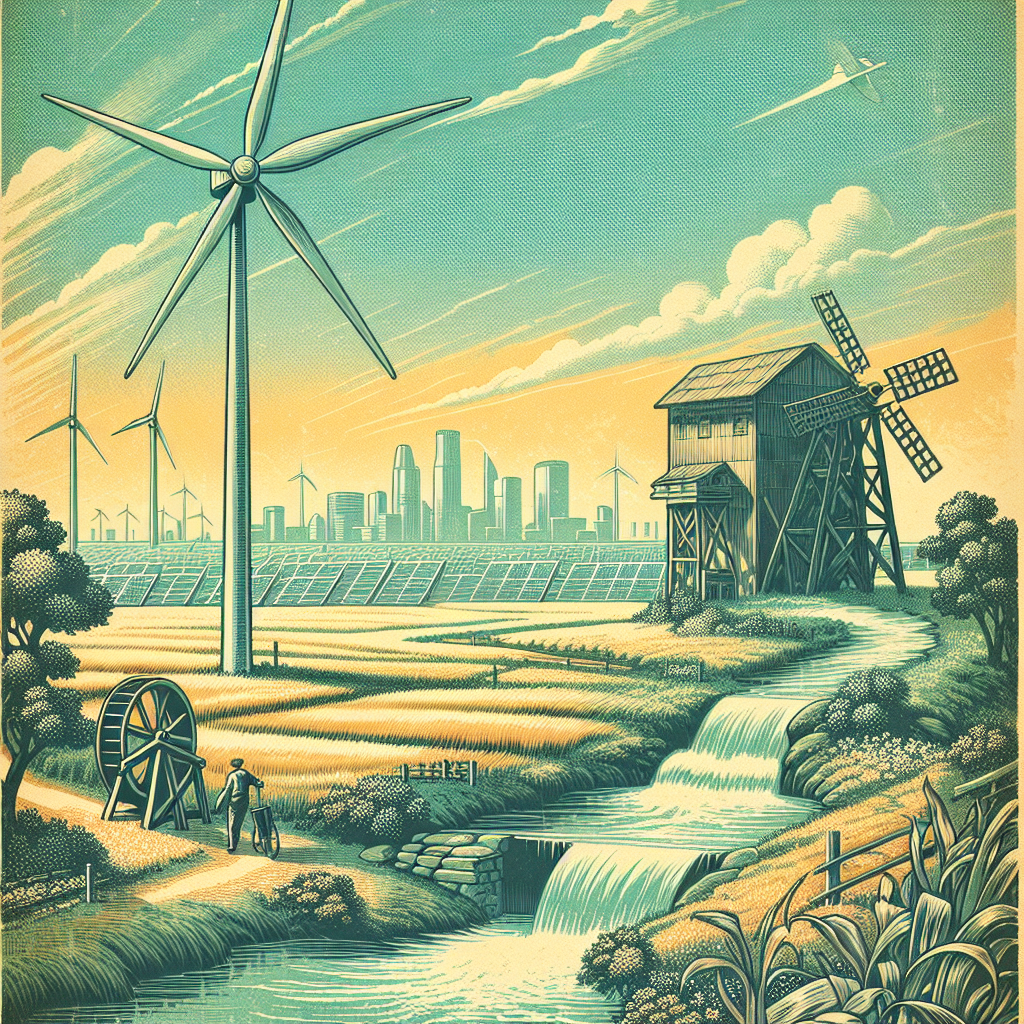Sustainable technology, often referred to as ‘green technology,’ focuses on energy efficiency, reducing environmental footprints, and using renewable resources.
The goal is to create systems that are capable of fulfilling our current needs without compromising the ability of future generations to meet theirs.
One of the most prominent examples of sustainable technology is renewable energy resources.
The rise of solar power and wind energy has revolutionized the way we perceive and utilize energy.
Solar panels and wind turbines have become increasingly common in residential and commercial spaces, providing a clean, renewable source of power that significantly reduces our reliance on fossil fuels.

Electric vehicles (EVs) have also made a significant impact in this arena. Equipped with rechargeable batteries and devoid of exhaust emissions, EVs are a testament to how technology can simultaneously cater to our needs and benefit the environment. Furthermore, the development of advanced charging infrastructure and an increase in their range has made EVs a practical and sustainable alternative to traditional vehicles.
Beyond energy, sustainable technology also plays a crucial role in managing waste and encouraging recycling. With innovative solutions like smart bins, which segregate waste and optimize collection routes, cities are becoming cleaner and more efficient. Additionally, advanced recycling technologies are enabling the repurposing of waste into useful products, leading to a circular economy.
In agriculture, sustainable technology has found its place in precision farming.
Using GPS, remote sensing, and IoT, farmers can now monitor and manage their fields with unprecedented accuracy, leading to increased crop yields and minimized environmental impact.
While these are remarkable strides towards creating a sustainable world, they are equally beneficial from an economic perspective. The installation of solar panels, for instance, reduces utility bills, while electric vehicles lower fuel costs.
Similarly, precision farming increases agricultural productivity, resulting in financial gain. From this viewpoint, sustainable technology not only benefits the environment but also promotes economic sustainability.
However, despite the significant advancements, there’s still room for growth. For sustainable technology to truly become mainstream, there are challenges to overcome. It necessitates continued research, bolstered by policies and investments that support the development and deployment of sustainable technology.
It’s worth noting that the adoption of sustainable technology isn’t just the prerogative of corporations or governments. As individuals, we have the power to drive change, whether it’s by investing in renewable energy for our homes, choosing to drive electric vehicles, or supporting companies that prioritize sustainability.
The rise of sustainable technology is a beacon of hope for a greener future. As the world continues to grapple with environmental challenges, these technologies provide practical solutions that can help us live more sustainably. We are at a pivotal juncture where our actions today will have a profound impact on tomorrow.
By embracing sustainable technology, we are not only ensuring a better life for ourselves but also securing a brighter future for generations to come.